Staff Affiliates

Prof Donatella Alessandrini
GCDC Academic Affiliate | Kent Law SchoolDonatella’s research and supervision interests are in the areas of international economic law, with a focus on trade and development theory, trade and inequalities, and law and feminist political economy. Her current research interrogates the claims of International Economic Institutions (such as the World Bank and the World Trade Organisation) about the development potential of Global Value Chains. In particular it examines the role trade law plays in the production and unequal distribution of economic value along these networks, asking what kind of arrangements might be able to shift current processes of global value making, with a focus on alternative labour, trade and finance-related arrangements. Informed by feminist economics and world system theories, her research therefore explores the relations between legal arrangements and socio-economic inequalities, speaking directly to the GCRF areas of sustainable economies and societies; and social justice. She is the author of Developing Countries and the Multilateral Trade Regime: The Failure and Promise of the WTO’s Development Mission (Hart, 2010); “Immaterial Labour and Alternative Valorisation Processes in Italian Feminist Debates: (re)exploring the ‘commons’ of re-production” (2012) Feminists@Law 1 (2). pp. 1-28; and ‘A Social Provisioning Employer of Last Resort: Post-Keynesianism Meets Feminist Economics’ (2013) World Review of Political Economy, 4 (2); and Value-Making in International Economic Law and Regulation: Alternative Possibilities (Routledge, 2016). Alessandrini, D. (2018). Of Value, Measurement and Social Reproduction. Griffith Law Review. View Donatella’s full academic profile here.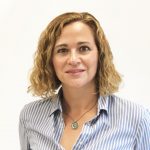
Prof Irma Clots-Figueras
GCDC Academic Affiliate | School of EconomicsIrma Clots-Figueras joined the School of Economics in 2019, where she is now a Professor of Economics. Before joining Kent, Irma was at Universidad Carlos III de Madrid. She received her PhD in Economics from the London School of Economics in 2006. Her research interests include Development Economics, Labor Economics, Migration, Cultural Economics, and Political Economy. Her research addresses two different GCRF Challenge areas: Human Rights, Good Governance and Social Justice, and Equitable Access to Sustainable Development. Her research has mainly focused on India, and addresses the following SDGs: Good Health and Wellbeing, Quality Education, Gender Equality, Reduced Inequalities, and Peace, Justice, and Strong Institutions. Irma would be happy to supervise high quality research projects on Economic Development and Political Economy. View Irma’s full academic profile here.
Dr Marina Ezcurra
GCDC Academic Affiliate | School of BiosciencesDr Marina Ezcurra is Group Leader and Lecturer in the Biology of Ageing. She did her PhD in Neuroscience at the Karolinska Institute and the MRC-LMB in Cambridge, and a postdoc at University College London studying the biology of ageing. At University of Kent she runs a research group aiming at understanding molecular mechanisms by which we can promote health in late life and extend the time we spend living healthy and free of disease. Ageing – A Global Challenge: Improvements in healthcare and nutrition mean that we now live longer than ever before. With ageing comes ill-health and disability, leading to detrimental effects on the quality of life of the elderly, and in large burdens for societies and healthcare systems globally. This demographic shift is hitting many DAC countries fast and hard. By 2050, 80% of the 2 billion elderly people on this planet will live in the developing world, putting a huge burden on already strained societies. The pace of population ageing around the world is also increasing dramatically. France had almost 150 years to adapt to a change from 10% to 20% in the proportion of the population that was older than 60 years. Countries such as Brazil, China and India will have 25 years to make the same adaptation. In sub-Saharan Africa, the number of people aged over 60 will triple from 2009 to 2050, and noncommunicable diseases such as heart disease, cancer and diabetes are becoming the main causes of mortality. Ageing is now a global issue. As populations world-wide are rapidly ageing, healthy ageing is key to sustainable global development. Age-related ill-health puts pressure on already constrained health care resources. Population ageing increases the burden of younger generations in providing for the elderly, reducing economic growth and increasing intergenerational inequality. In many countries an increasing burden of care of the elderly is falling on female relatives, resulting in increased gender inequality. Older people face a higher risk of poverty because of lower incomes and small pensions. The current COVID-19 pandemic, which is hitting elderly and frail people the hardest, highlights the importance of healthy ageing and the vulnerability of societies with ageing populations. Understanding the biological processes underlying ageing and how to achieve sustainable health and wellbeing will have a global impact. Our research addresses the ageing challenges by improving the biological understanding of ageing and ageing interventions, and by working with researchers in other disciplines to evaluate economic, social and medical challenges and capacities, and developing evidence-based solutions. We are currently working with partners in Thailand to grow our biological understanding of healthy ageing and also to develop research approaches suitable for laboratories in DAC countries, enabling sustainable research capacity in these countries. View Marina’s full academic profile here.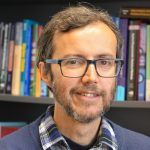
Prof Alex Freitas
GCDC Academic Affiliate | School of ComputingProf Alex Freitas is a Professor of Computational Intelligence at the School of Computing, University of Kent. He has an interdisciplinary academic background, with a PhD in Computer Science from the University of Essex, UK (1997), in the area of machine learning (or data mining), and a research-oriented master’s degree (an MPhil) in Biological Sciences from the University of Liverpool, UK (2011), in the area of the biology of ageing with machine learning and bioinformatics methods. He also worked as a Lecturer in Brazil for about 4 years (1998-2002) and has several research collaborators in Brazil. His main research interests are the development of new classification (supervised learning) methods for machine learning, data mining and knowledge discovery, as well as the application of such methods to the life sciences, particularly the biology of ageing, but also pharmaceutical sciences and biomedicine in general. Regarding the research areas of Kent’s Global Challenges Doctoral Centre (GCDC), his ageing-related research is related to the challenge area of ‘sustainable health and well-being’, and to the UN Sustainable Development Goal of ‘good health and well-being’. Ageing research is particularly relevant for this area because many countries are experiencing an ageing population, where an increasingly larger proportion of the population consist of elderly people, and old age is the greatest risk factor for many diseases. Hence, he is particularly interested in supervising research students in the area of machine learning for ageing-related research. View Alex’s full academic profile here and his list of publications here.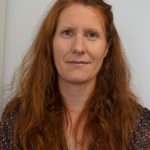
Dr Sarah Hotham
GCDC Staff Affiliate | Centre for Health Services Studies | School of Social Policy, Sociology and Social ResearchI am a Senior Research Fellow and BPS Chartered Psychologist based at the Centre for Health Service Studies (CHSS), University of Kent. I am an expert in behavioural health psychology, with a specific focus on areas of nutrition (breastfeeding, obesity and malnutrition), sanitation and training of healthcare professionals. Previous research projects in GCRF-related areas include a project funded by GCRF Partnership Fund to explore the breastfeeding habits of men in Uganda, an evaluation of a WASH initiative in Cambodia and the training of healthcare professionals in St Helena. My current and previous research has focused on three UN Sustainable Development Goals: Zero hunger (SDG2); Good health and wellbeing (i.e. decrease the risk of non-communicable diseases) (SDG3); and Clean water and sanitation (SDG 6). My current and previous research has supported several GCRF Challenge areas: Equitable access to sustainable development (sustainable health and wellbeing); and Human rights, good governance and social justice (reduce inequality and promote human rights in a country affected by conflict and displacement. DAC-countries benefiting from my research: Uganda; Cambodia; and St Helena. View Sarah’s full academic profile here.
Prof Ben Lowe
GCDC Staff Affiliate | Kent Business SchoolBen Lowe is Professor of Marketing at Kent Business School, University of Kent. Ben’s research interests are in consumer adoption and acceptance of new technologies and innovations. He is also particularly interested in marketing communications and pricing strategies and approaches. Work in the area has been around consumer decision making and information processing and has looked at mobile apps, virtual health communities, water saving technologies, energy efficient technologies, and other innovations targeted at low income segments of the market (e.g., mobile banking, ICT, mobile services and others) in countries within Asia and Africa. He also has a keen interest in “social marketing”, which is about using marketing tools to encourage voluntary behaviour change for a social good. In this regard, work is closely related to sustainable consumption. He has published extensively around the broad theme of consumer behaviour and behaviour change but more recently has published articles on “pro-poor innovation adoption” (see below for a sample of recent articles in well known international journals). He has co-authored a book on Marketing Research, currently in its 5th edition and has co-edited special issues on “Consumers and Technology in a Changing World” (European Journal of Marketing) “Changing Food Consumption Behaviours” (Psychology & Marketing) and “Online Financial Services in a Changing World” (Service Industries Journal). Ben has received funding from the Technology Strategy Board (now Innovate UK), the British Academy and the Hong Kong Research Grant Council. He is on the editorial review board of several journals and serves as an Associate Editor for the European Journal of Marketing. Lowe, B., Dwivedi, Y. and d’Alessandro, S. (2019). Consumers and Technology in a Changing World. European Journal of Marketing [Online] 53:1038-1050. Available at: https://www.emerald.com/insight/publication/issn/0309-0566/vol/53/iss/6. Hasan, R., Lowe, B. and Petrovici, D. (2019). Consumer Adoption of Pro-poor Service Innovations in Subsistence Marketplaces. Journal of Business Research [Online]. Available at: http://dx.doi.org/10.1016/j.jbusres.2018.12.075. Hasan, R., Lowe, B. and Petrovici, D. (2019). An Empirical Comparison of Consumer Innovation Adoption Models: Implications for Subsistence Marketplaces. Journal of Public Policy and Marketing [Online] 38:61-80. Available at: https://dx.doi.org/10.1177/0743915618813348. Hasan, M., Lowe, B. and Rahman, M. (2017). Visual cues and innovation adoption among bottom of the pyramid consumers. Qualitative Market Research [Online] 20:147-157. Available at: https://doi.org/10.1108/QMR-04-2015-0032. View Ben’s full academic profile here.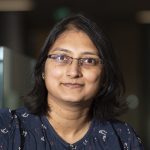
Dr Bansi Malde
GCDC Staff Affiliate | School of EconomicsBansi’s research focuses on understanding the role of extended family networks in shaping household outcomes in developing countries and on investigating the determinants of household investments in health. Her research combines insights from economic models and quantitative data and methods, including randomised field experiments, to shed light on these issues. She has worked on data from a range of countries, including Malawi, Kenya, India and Mexico. GCRF Challenge Areas addressed in her research: Equitable access to sustainable development Sustainable economies and societies Human rights, good governance and social justice UN SDGs supported by her research: Goal 2: zero hunger Goal 3: Good health and wellbeing Goal 6: Clean water and sanitation Goal 10: Reduced inequalities View Bansi’s full academic profile here.
Dr Rebecca Ogden
GCDC Academic Affiliate | School of European Culture and LanguagesMy current research addresses reproductive politics in Latin America, especially how popular, visual and digital culture articulates and informs understandings of birth and midwifery in Cuba, Mexico and the Dominican Republic (all DAC listed countries). In this project I interrogate how culture normalises and reflects practices bearing on reproductive health-based development challenges such as the burden of neonatal and maternal mortality. I am also interested in the intersection of sustainable development, heritage and tourism: a parallel project I have contributed to interrogates the potential for international tourism to positively and sustainably impact local development in Granma province, Cuba. View Rebecca’s full academic profile here.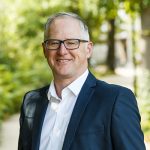
Prof Jesse O’Hanley
GCDC Academic Affiliate | Kent Business SchoolJesse is Co-I of a GCRF/EPSRC-funded project entitled, Improving Community Resilience and Sustainability Through Operational Research Capacity Building in Southeast Asia (CREST-OR) and recently received funding from the University’s GCRF Partnership Development Fund for a project entitled, Building analytics research capacity for sustainable development in Myanmar. View Jesse’s full academic profile here.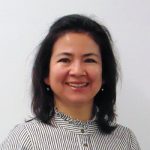
Dr Penélope Pacheco-López
GCDC Staff Affiliate | School of EconomicsMy main research interests are on development economics, industrial policy and international trade. I have worked, in different capacities, for various United Nations agencies, including the United Nations Industrial Development Organisation (UNIDO), the United Nations Conference on Trade and Development (UNCTAD), the International Trade Centre (ITC) and the United Nations Development Programme (UNDP)-Georgia. My research focuses on empirical studies for developing countries. I have published on international trade and economic development topics in refereed journals such as the International Review of Applied Economics, World Economy, Investigacion Economica, among others. I have been a Social Sciences panel reviewer for the British Council (Newton Researcher Links, Institutional Links) since 2014 and a reviewer for the Newton Prize 2019 and 2020. I am currently designing a research project on the UN Sustainable Development Goals, specifically to study the performance of Mexico and a selected group of Latin American countries. View Penélope’s full academic profile here.
Dr David L Roberts
GCDC Academic Affiliate | School of Anthropology and ConservationDr David Roberts came to the Durrell Institute of Conservation and Ecology at the University of Kent, having spent over 8 years as an orchid specialist at the Royal Botanic Gardens, Kew where he conducted extensive fieldwork in the Western Indian Ocean islands, as well as West Africa. At no other time has the environment and its biodiversity been in such a vulnerable state. Over-exploitation and illegal exploitation of wildlife has been significantly blamed for the decline and extinction of species. Further, wildlife trafficking is particularly pernicious as not only does it impact the environment but it also spreads corruption and fuels conflict. While bans are often seen as a solution, they can lead negative impacts on both local communities as sustainable utilisation of wildlife can have significant socio-economic benefits. Much of my research interests focus on the wildlife trade, both legal and illegal, from local communities to the Dark Web. Current projects are focussing on or looking to focus on the Nagoya Protocol on Access and Benefit Sharing, sustainable development of the horticultural trade in Mozambique and Georgia, sustainable development of the ornamental aquatics trade in the Solomon Islands and the role of ecotourism as a sustainable livelihood strategy is a post-ivory ban landscape in Kenya. As such my research addresses GCRF challenge areas on(a) sustainable economies and societies, and (b) equitable access to sustainable development, as well as a number of UN Sustainable Development goals including 8.9, 11.4, 12.2 and 15.5-7. Selected Publications: Hinsley, A., & Roberts, D. L. (2018). Assessing the extent of access and benefit sharing in the wildlife trade: lessons from horticultural orchids in Southeast Asia. Environmental conservation, 45(3), 261-268. Robinson, J. E., Fraser, I. M., St John, F. A. V., Randrianantoandro, J. C., Andriantsimanarilafy, R. R., Razafimanahaka, J. H., Griffths, R. A., & Roberts, D. L. (2018). Wildlife supply chains in Madagascar from local collection to global export. Biological Conservation, 226, 144-152. Robinson, J. E., Griffiths, R. A., Fraser, I. M., Raharimalala, J., Roberts, D. L., & St. John, F. A. V. (2018). Supplying the wildlife trade as a livelihood strategy in a biodiversity hotspot. Ecology and Society, 23(1). Hinsley, A., Nuno, A., Ridout, M., St John, F. A. V., & Roberts, D. L. (2017). Estimating the extent of CITES noncompliance among traders and end‐consumers; lessons from the global orchid trade. Conservation Letters, 10(5), 602-609. Lee, T. E., & Roberts, D. L. (2016). Dehorning rhinos as a theoretical game. Ecological Modelling, 337, 73-78. View Dave’s full academic profile here.
Dr M. May Seitanidi
GCDC Academic Affiliate | Kent Business SchoolM. May Seitanidi (PhD, University of Nottingham) is a Reader in Strategy at Kent Business School, University of Kent, UK. She is a Visiting Professor in CSR at LUISS Business School, in Rome, Italy and former Editor of The Annual Review of Social Partnerships (ARSP). Her research interests focus on the enabling conditions, governance processes and outcomes of cross-sector social interactions, (philanthropy, socio-sponsorship and social partnerships) in addressing complex social issues. She has published three books (The Politics of Partnerships, 2010; co-edited Social Partnerships & Responsible Business. A Research Handbook, 2014 and co-authored Creating Value in Nonprofit-Business Partnerships. New Thinking & Practice, 2014, which received the 2014 Finalist ‘The Terry McAdam’ Book Award) and co-edited four Special Issues in the field of cross-sector social partnerships. She has published in academic journals including the Journal of Business Ethics, Nonprofit Voluntary Sector Quarterly, Corporate Reputation Review, Management Decision, International Journal of Nonprofit and Voluntary Sector Marketing, European Management Journal. View May’s full academic profile here.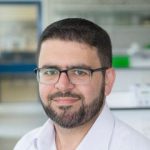
Dr Anastasios Tsaousis
GCDC Academic Affiliate | School of BiosciencesMy name is Dr. Anastasios Tsaousis and I am the Principal Investigator of the Laboratory of Molecular and Evolutionary Parasitology at the School of Biosciences at the University of Kent. The current research of my laboratory is focused on the investigations of the adaptations of microbial eukaryotic organisms, and their course in parasitic evolution and diversity. To accomplish this, my laboratory is combining detailed bioinformatics analyses of newly generated omics results with field (epediomological), cell biological and biochemical methods to address questions in regards to the role(s) of parasites in human and animal health and disease. View Anastasios’ full academic profile here.

